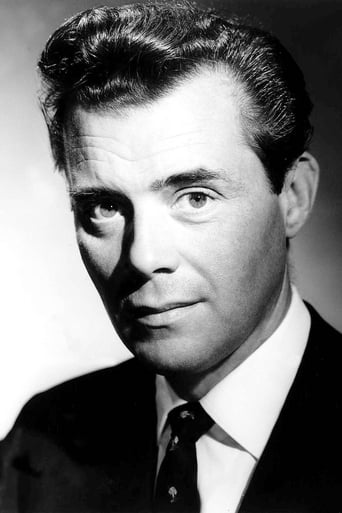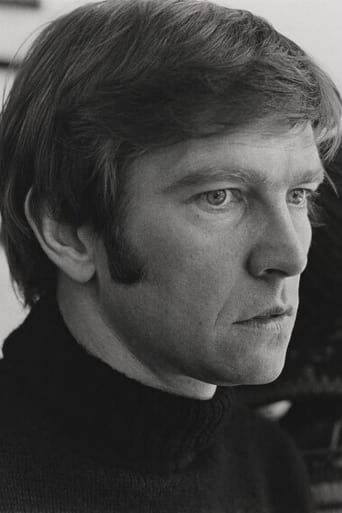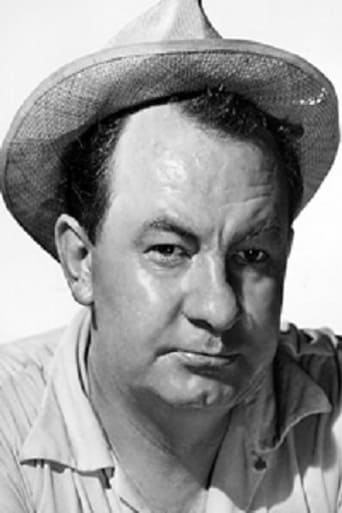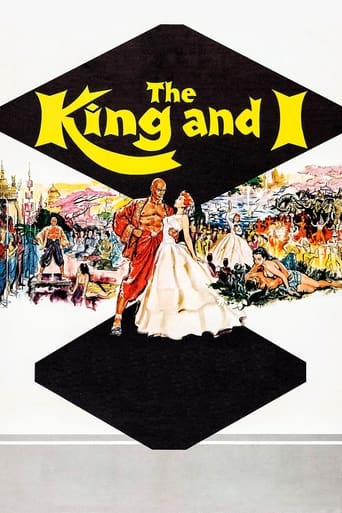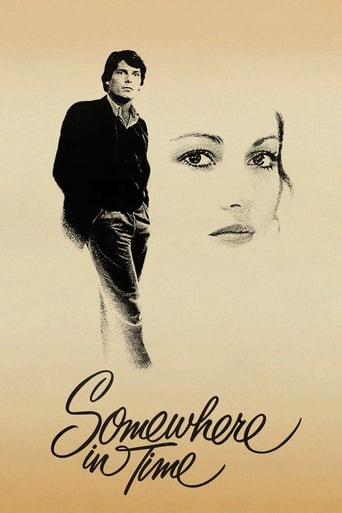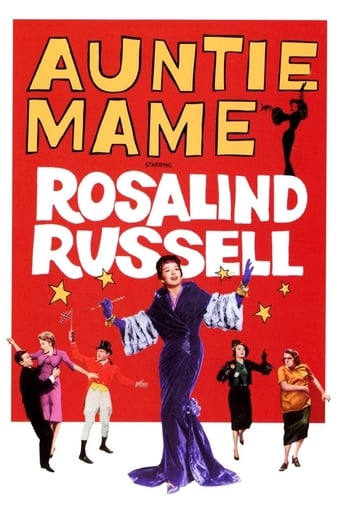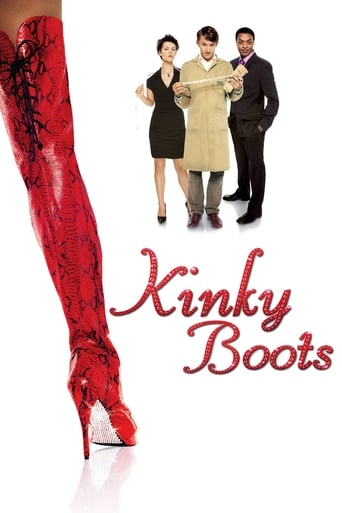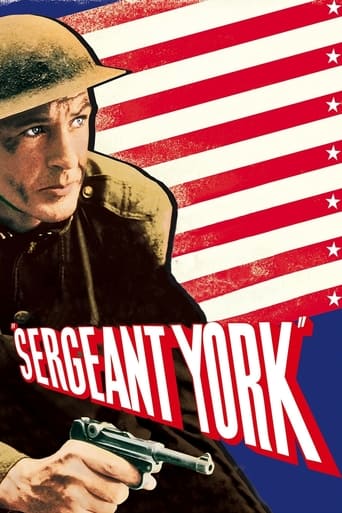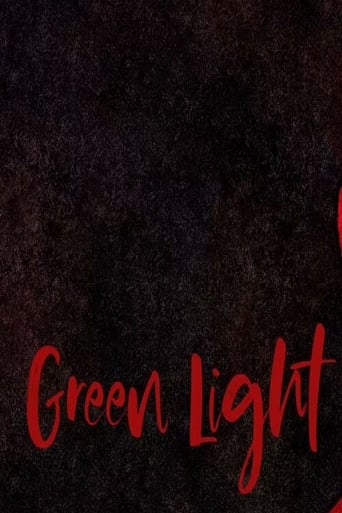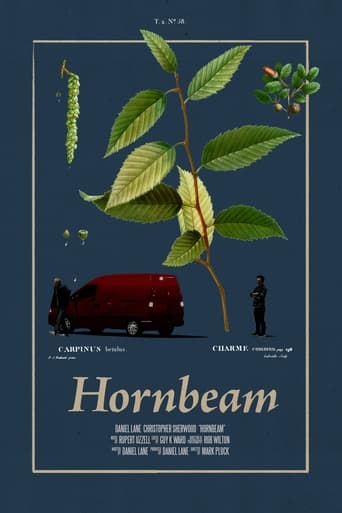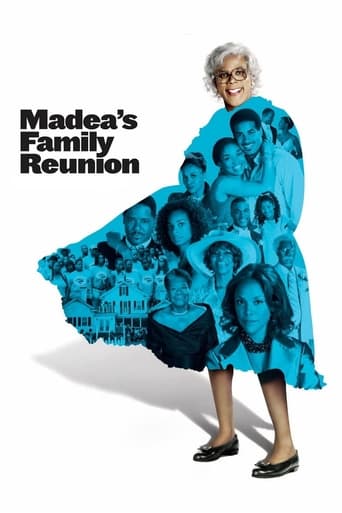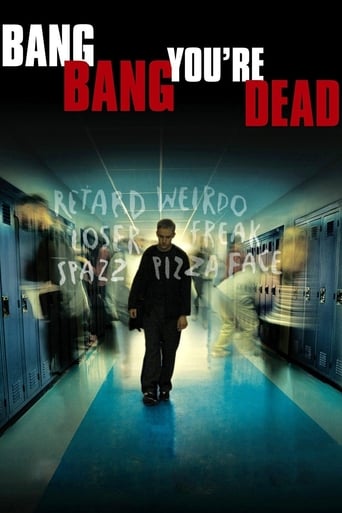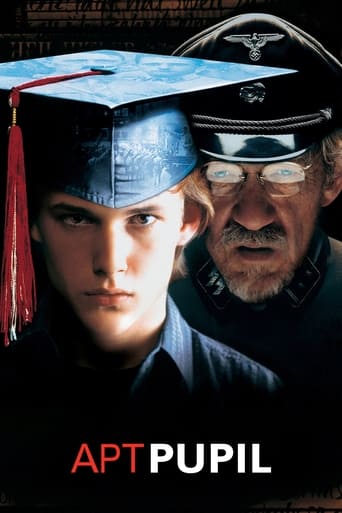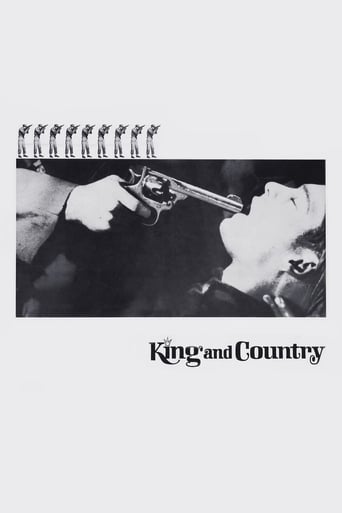
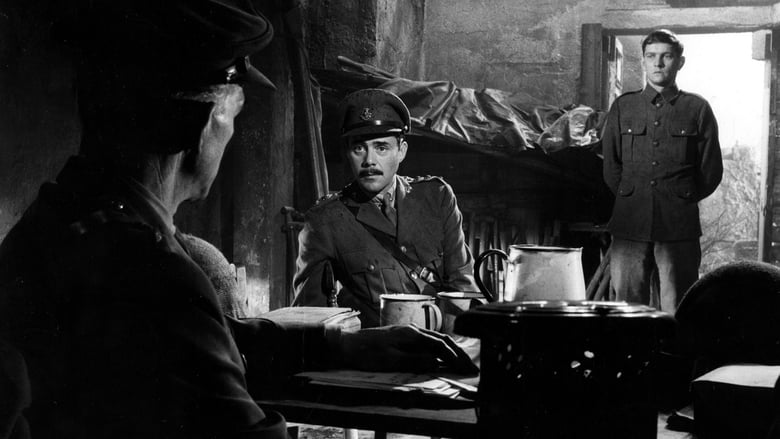
King and Country (1965)
During World War I, Army Private Arthur James Hamp is accused of desertion during battle. The officer assigned to defend him at his court-martial, Captain Hargreaves, finds out there is more to the case than meets the eye.
Watch Trailer
Cast


Similar titles
Reviews
Joseph Losey's King And Country (1964) Is a very good film. Although one might justifiably place it in some such genre as War I Films, such a taxonomic pigeon hole really doesn't do justice to this rather complex film.This is clearly a film about class divisions in Great Britain, with the much educated, upper class officers passing judging on a lowly private charged with desertion, a lowly private who tells his upper crust military defense attorney that he quit school at 12 years old to become a cobbler, just like his father and grandfather before him.It is a film about a long ago war when the full nature and extent of combat PTSD was not known, nor so much a concern of the officers in charge.This is a film about a lowly working class stiff who volunteered for the army for love of country, very early on the war and, after enduring three years of relentless battle amidst the horrors of the trenches, wasn't given a "break", a second chance after the first blemish on his record.This is a film about a military defense attorney, portraying the staid and "proper" British upper class demeanor, and just assuming that his client is guilty even before the trial has begun who, in the course successive personal contacts with his client undergoes somewhat of a transformation of personality and character, as the story of his client's "desertion" becomes an analogue in his mind for the futility of the Great War, a futility that neither side was willing to admit, while more and more young men were sent to their slaughter in a vain attempt to just to obscure the obvious truth of that futility.This is a film about "just following orders", of "just following the rules", even when such blind obedience to such verbal prescriptions blinds us also to the utter humanity of the situation at hand.The sober BW cinematography in this film relentlessly grinds these themes into our souls, as it gives us unrelenting shots of a mud drenched, claustrophobic environment, where it never stops raining, and where this bleak, hopeless atmosphere is punctuated by archival still photos that give us a close up, "in your face" look at the actual horrors of trench warfare.This film is a quite compelling, and thought provoking portrayal of not only WW I, but also of the utter senselessness of fighting any war whatsoever.
.....My cable company gave this three and one half (out of four) stars, and I don't know why.Sort of a poor man's Paths of Glory or Caine Mutiny with none, and I mean NONE of the charm or depth.Movie didn't change much, from the first few minutes to almost the end.Didn't learn a great deal about WWI, either.Yeah, yeah, we get it, soldier leaves post due to either shell shock or cowardice and is put on trial, facing a possible death sentence. Boy, how many movies have had THIS plot before? Yawn.I thought the only thing that could rescue this crappy film was a surprise or happy ending, but I got neither.
"King & Country," directed by Joseph Losey and released in 1964, is an unrelenting look at war. The World War I drama concerns a young soldier (Tom Courtenay) who is being tried for desertion. It's evident that, after his whole battalion was lost, that the boy was shell-shocked. A Captain Hargreaves (Dirk Bogarde) is brought in to defend him.The film has actual photos of dead bodies from the London War Museum throughout the movie. The setting is freezing cold, wet bunkers with lots of mud. The men have been jaded to death and suffering and at times act brutally.The end of the film is particularly awful, that's the only word I can think of. Not awful as in it's a bad movie, but awful in the situation.Tom Courtenay does an excellent job as a wide-eyed young man who really doesn't realize what he did or what may happen to him as a result; Leo McKern turns in an excellent performance as a no-nonsense officer. Dirk Bogarde is wonderful as the captain who goes to the mat for his client and comes up against a cruel system that seems to have no understanding of or compassion for human frailty.Lots of gross stuff in this movie - imagine actually having to endure it. Excellent directing job by Losey, and a thought-provoking film that you won't forget quickly, even though you want to.
The last time Britain was a major force in world cinema was in the 1960s; a documentary of a few years back on the subject was entitled 'Hollywood UK'. This was the era of the Kitchen Sink, social realism, angry young men; above all, the theatrical. And yet, ironically, the best British films of the decade were made by two Americans, Richard Lester and Joseph Losey, who largely stayed clear of the period's more typical subject matter, which, like all attempts at greater realism, now seems curiously archaic.'King and Country', though, seems to be the Losey film that tries to belong to its era. Like 'Look Back in Anger' and 'A Taste of Honey', it is based on a play, and often seems cumbersomely theatrical. Like 'Loneliness of the long distance runner', its hero is an exploited, reluctantly transgressive working class lad played by Tom Courtenay. Like (the admittedly brilliant) 'Charge of the Light Brigade', it is a horrified, near-farcical (though humourless) look at the horrors of war, most particularly its gaping class injustices.Private Hamp is a young volunteer soldier at Pachendaele, having served three years at the front, who is court-martialled for desertion. Increasingly terrorised by the inhuman pointlessness of trench warfare, the speedy, grisly, violent deaths of his comrades and the medieval, rat-infested conditions of his trench, he claims to have emerged dazed from one gruesome attack and decided to walk home, to England. He is defended by the archetypal British officer, Captain Hargreaves, who professes disdain for the man's cowardice, but must do his duty. He attempts to spin a defence on the grounds of madness, but the upper-crust officers have heard it all before.This is a very nice, duly horrifying, liberal-handwringing, middle-class play. It panders to all the cliches of the Great War - the disgraceful working-class massacre, while the officers sup whiskey (Haig!) - figured in some charmingly obvious symbolism: Hargreaves throwing a dying cigarette in the mud; Hamp hysterically playing blind man's buff. The sets are picturesquely grim, medieval, a modern inferno, as these men lie trapped in a never-ending, subterranean labyrinth, lit by hellish fires, with rats for company and the constant sound of shells and gunfire reminding them of the outside world. The play, in a very middle-class way, is not really about the working class at all - Hamp is more of a symbol, an essence, lying in the dark, desolately playing his harmonica, a note of humanity in a score of inhumanity. He doesn't develop as a character. The play is really about Hargreaves, his realisation of the shabby inadequacy of notions like duty. He develops. This realisation sends him to drink (tastier than dying!). Like his prole subordinates, he falls in the mud, just as Hamp is said to have done; he even says to his superior 'We are all murderers'. This is all very effective, if not much of a development of RC Sherriff's creaky 'Journey's End', filmed by James Whale in 1930. Its earnestness and verbosity may seem a little stilted in the age of 'Paths of Glory' and 'Dr. Strangelove'; we may feel that 'Blackadder goes forth' is a truer representation of the Great War. But what I have described is not the film Losey has made. He is too sophisticated and canny an intellectual for that. The film opens with a lingering pan over one of those monumental War memorials you see all over Britain (and presumably Europe), as if to say Losey is going to question the received ideas of this statue, the human cost. But what he's really questioning is this play, and its woeful inadequacy to represent the manifold complexities of the War. This is Brechtian filmmaking at its most subtle. We are constantly made aware of the artifice of the film, the theatrical - the stilted dialogue is spoken with deliberate stiffness; theatrical rituals are emphasised (the initial interrogation; the court scene, where actors literally tread the boards, enunciating the predictable speeches; the mirror-play put on by the hysterical soldiers and the rats; the religious ceremony; the horrible farce of the execution). Proscenium arches are made prominent, audiences observe events. This is a play that would seek to contain, humanise, explain the Great War. This is a hopeless task, as Losey's provisional apparatus explains, 'real' photographs of harrowing detritus fading from the screen as if even these are not enough to convey the War, never mind a well-made, bourgeois play. Losey's vision may be apocalyptic - it questions the possibility of representation at all - the various tags of poetry quoted make no impact on hard men men who rattled them off when young; the Shakespearean duality of 'noble' drama commented on by 'low' comedy, effects no transcendence, no greater insight. Losey's camerawork and composition repeatedly breaks our involvement with the drama, any wish we might have for manly sentimentality; in one remarkable scene an officer takes an Aubrey Beardsley book from the cameraman! This idea of the theatrical evidently mirrors the rigid class 'roles' played by the main characters (Hamp's father and grandfather were cobblers too; presumably Hargreaves' were always Sandhurst cadets). Losey also takes a sideswipe at the kitchen sink project, by using its tools - history has borne him out.


